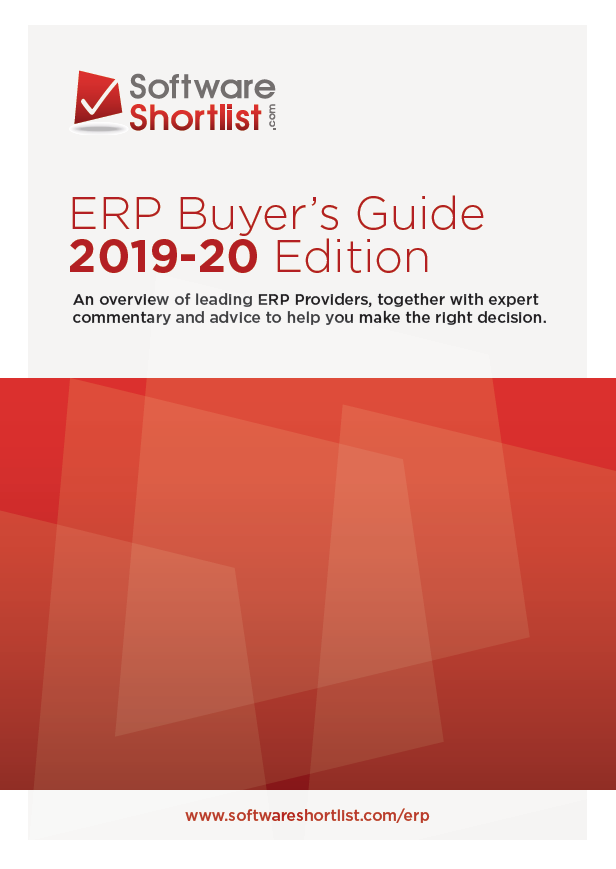Failed ERP projects litter business history books the world over. Here Sourya Biswas captures some of the lessons that time has taught those who have succeeded in getting their companies into the annals of IT infamy…
You’ve made the decision to implement an ERP system in your organization and now you need to know how to get it right. Learning from your own mistakes is all very well, but learning from other people’s failures is even better. iStart canvassed some leading ERP implementation consultants happy to share their biggest project errors. Here’s what they said:
Fail #1 – Have a flexible scope
The requirements of any business are always in a state of flux, so it makes sense that locking down the scope of your ERP implementation is not ideal. After all, you wouldn’t want to end up with something that does not address all your business needs, would you? So why not be flexible in scope, making nips and tucks as required during the actual implementation?
…Well, because you will be creating a prime candidate for project creep and budget blow-outs, not to mention a sprawling system with no cohesive plan. Our consultants said it’s better to freeze your scope after intensive requirements gathering involving all stakeholders.
Fail # 2 – Don’t bother searching for options
ERP solutions are one-size-fits-all tools right? While there are several players in the market, it’s a waste of time and money evaluating which one best fits the project requirements, so it’s better to go with one of the big names and then customise the product to your specific needs.
…But only if you want to spend silly amounts of money, as our consultants have learnt (to their cost). They suggest you evaluate multiple options to find the right product for your specific requirements. In particular they recommend considering vertically focused products from vendors as well as broader offerings from the larger players. And don’t just consider the product – people, process and culture are all important in finding the right fit (not to mention price).
Fail # 3 – Ignore Best Practices
Best Practices are devised by people who have heaps of subject matter knowledge but they don’t understand the particulars of your organisation. So how would they help you with your ERP implementation? Much better to just ignore published Best Practices and depend on in-house expertise – right?
…Wrong – our experts have got over an exaggerated confidence in their own knowledge. Thanks to the odd project failure, they say they were forced to admit that following industry-specific Best Practices would have avoided some expensive mistakes. But be pragmatic and apply recommendations to the particular project carefully. “Consult the common sense department” was a common phrase!
Fail # 4 – Don’t waste time (or money) on training
Many organisations spend large amounts training their employees in the use of ERP but isn’t training over-rated? You’ve already expended resources to get the best employees working for you so why should you spend more on teaching them when they are perfectly capable of teaching themselves? After all you selected the system because it was intuitive and easy to use didn’t you?
…ERP might not be rocket science, but it still needs to be interpreted and made relevant to staff in your organisation, say our experts. Rather than looking at training as a cost treat it as a vital investment to embed the new system in your business, and start getting returns on the overall effort. At the same time you can use it to iron out those persistent process wrinkles around the place. It would be a shame to spend all that money on the system only to have staff go back to spreadsheets and pen and paper – don’t laugh, it happens.
Fail #5 – Support is for sissies
So once your ERP product is in place, you don’t want to waste dollars on maintenance and support contracts. Why would you want support? The system must be all sweet if you’ve decided to go-live, right? And new releases just force changes on you when you just want a stable system that staff can get cosy with.
…Our consultants have suffered through the pain of this false economy and say you should get an expert provider for support…at least in the initial years until in-house resources acquire the relevant knowledge and expertise. They also advise that keeping up with your maintenance payments and installing new releases will ensure the solution does not become obsolete – and also force you to make sure any customisations comply with your chosen vendor’s upgrade paths.
Good luck and don’t screw up!
To ensure that you don’t mess up with your ERP selection process and to find the best available options, refer to the ERP Buyers Guide 2013.



